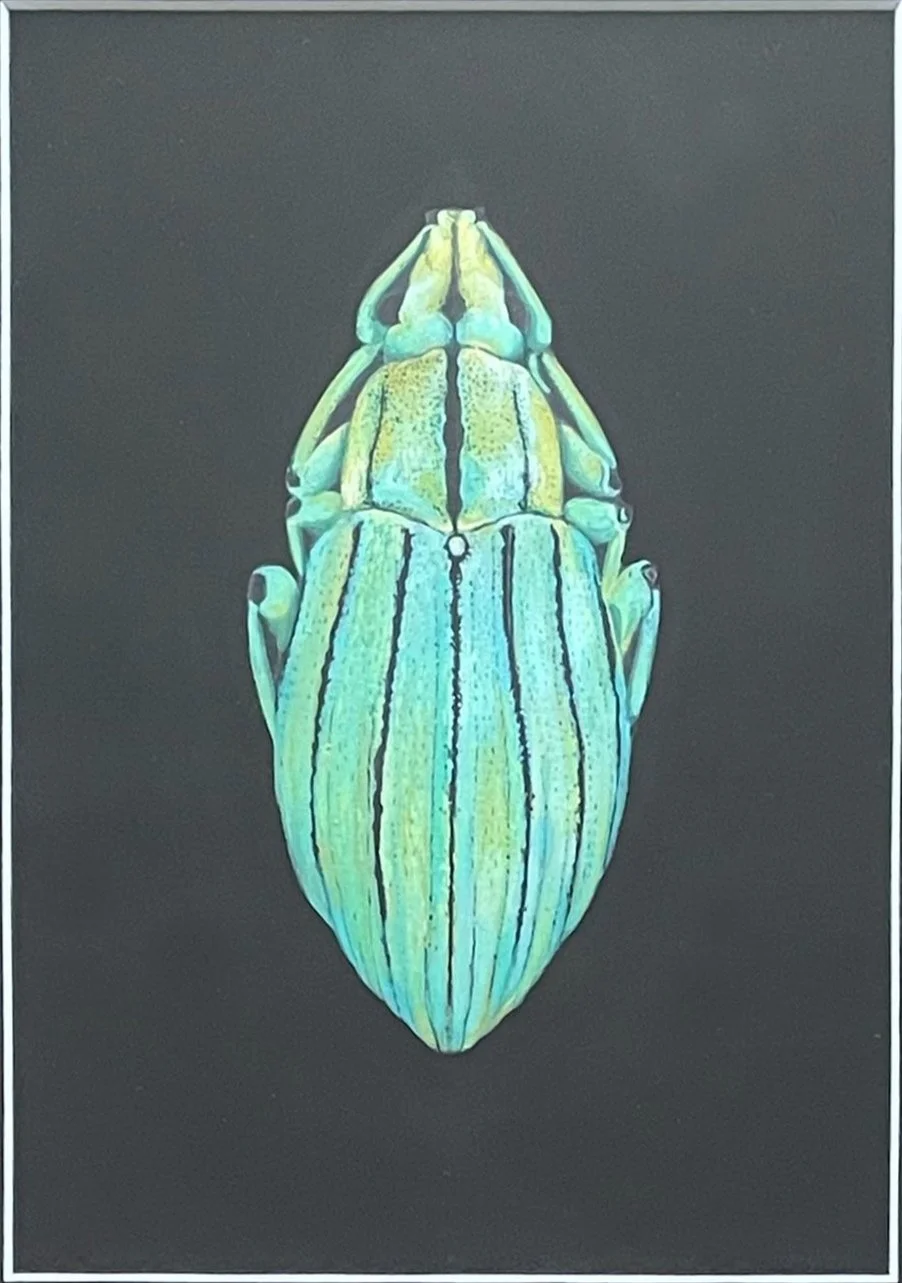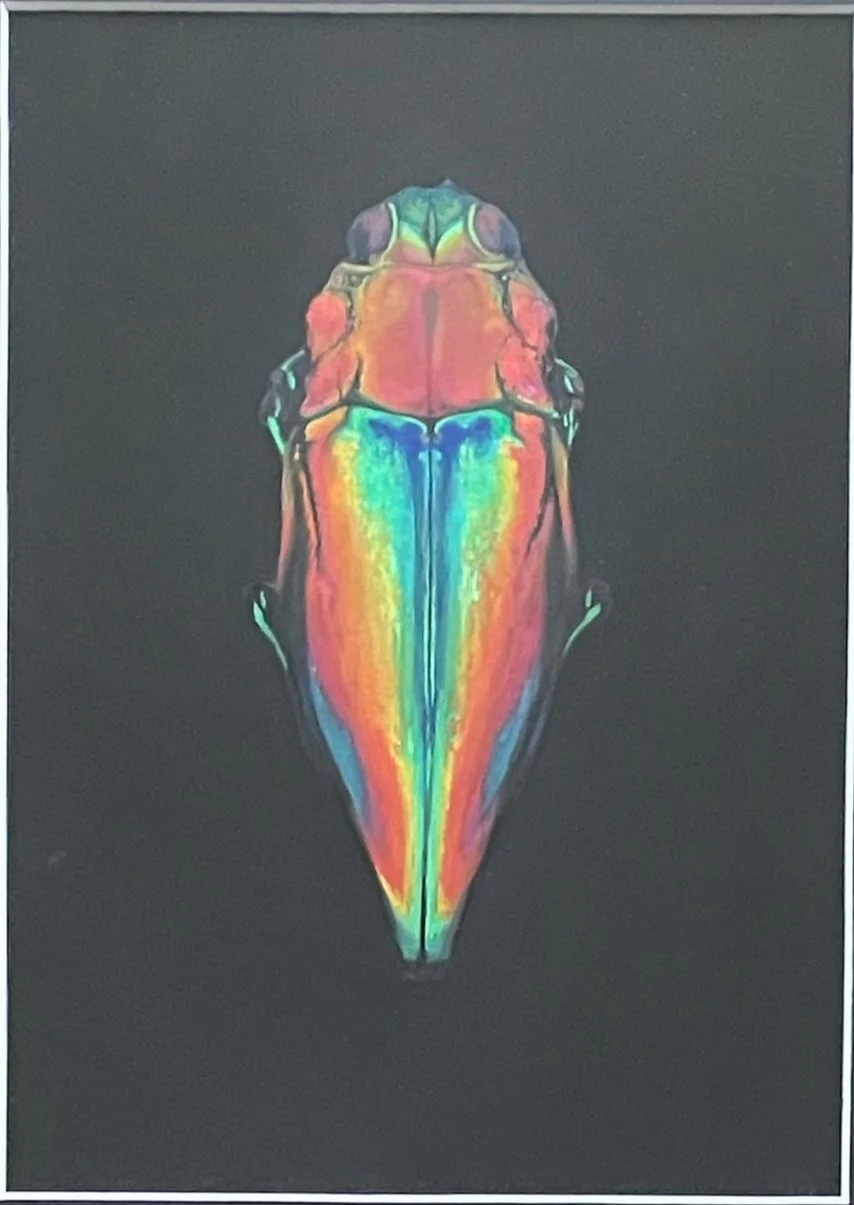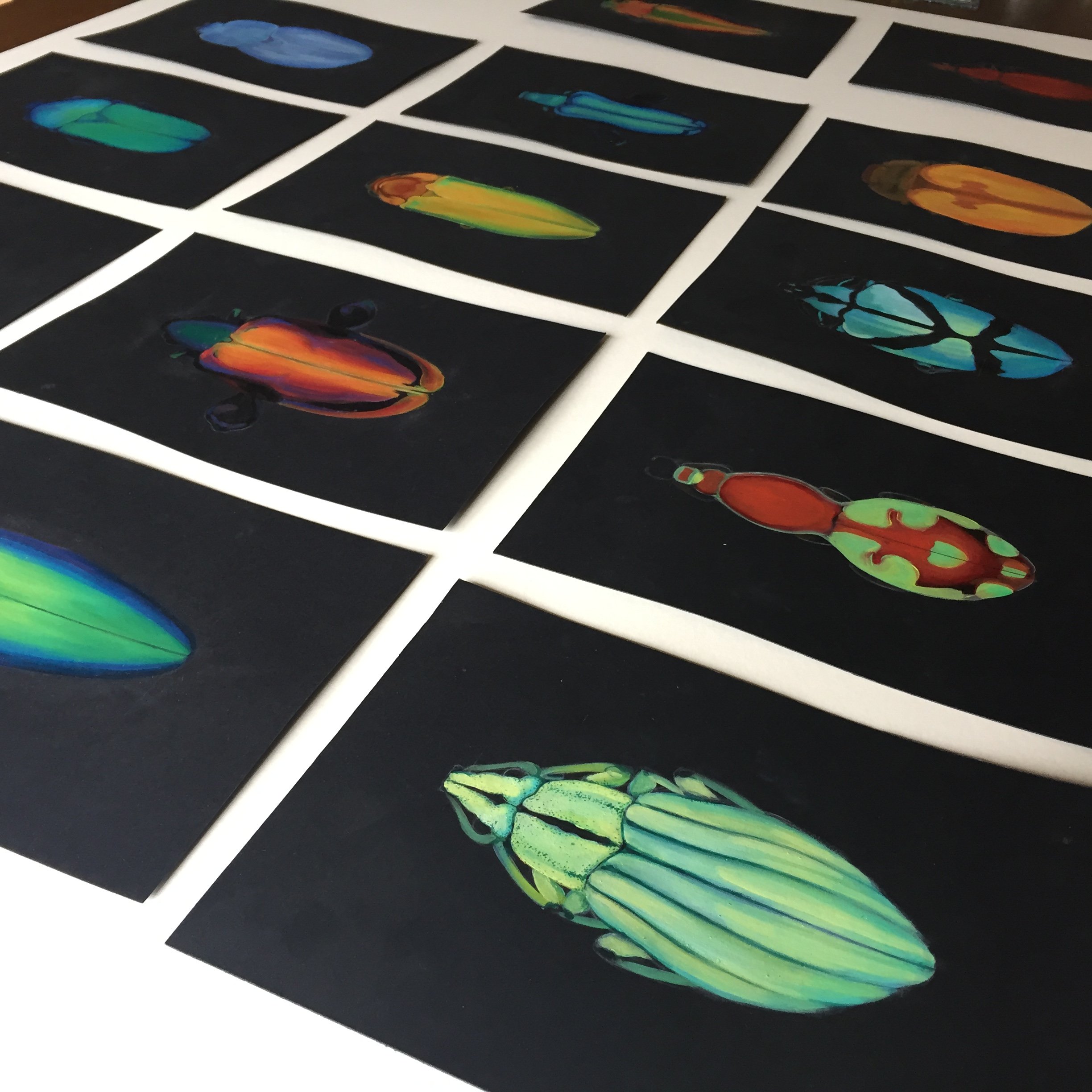Climate
Jewell Beetles
This set of paintings aims to provoke questions on how we measure worth, during a time when we face the loss of animals that are an essential part of our ecosystem. The paintings contain a small selection of the vast yet rapidly declining species, chosen from a huge collection of paintings of insects that pollinate and feed the Earth. The beetles here, chosen for their beauty, to highlight the natural wonder that is facing extinction alongside the pollination of our food. Each of the insects with their own unique form, colour palette and patterns set against the black background. The use of Stuart Semple Black (black being the absence of all colour) surrounding the beetles reflects on the inevitable impact on plant, animal and human life if nothing is done to halt the ongoing global disappearance of insects.
Green Curculioida Weevil
‘Jewel Beetles’ (First stages of oil paint on prepared paper )
’Measure’
Below is one of many recent articles in early 2019– this one is taken from the Guardian and Scientific Review:
The world’s insects are hurtling down the path to extinction, threatening a “catastrophic collapse of nature’s ecosystems”, according to the first global scientific review. More than 40% of insect species are declining and a third are endangered, the analysis found. The rate of extinction is eight times faster than that of mammals, birds and reptiles. The total mass of insects is falling by a precipitous 2.5% a year, according to the best data available, suggesting they could vanish within a century. The 2.5% rate of annual loss over the last 25-30 years is “shocking”, Sánchez-Bayo told the Guardian: “It is very rapid. In 10 years you will have a quarter less, in 50 years only half left and in 100 years you will have none.”
One of the biggest impacts of insect loss is on the many birds, reptiles, amphibians and fish that eat insects. “If this food source is taken away, all these animals starve to death,” he said. The planet is at the start of a sixth mass extinction in its history, with huge losses already reported in larger animals that are easier to study. But insects are by far the most varied and abundant animals, outweighing humanity by 17 times. They are “essential” for the proper functioning of all ecosystems, the researchers say, as food for other creatures, pollinators and recyclers of nutrients.
“If insect species losses cannot be halted, this will have catastrophic consequences for both the planet’s ecosystems and for the survival of mankind,” said Francisco Sánchez-Bayo, at the University of Sydney, Australia, who wrote the review with Kris Wyckhuys at the China Academy of Agricultural Sciences in Beijing.












